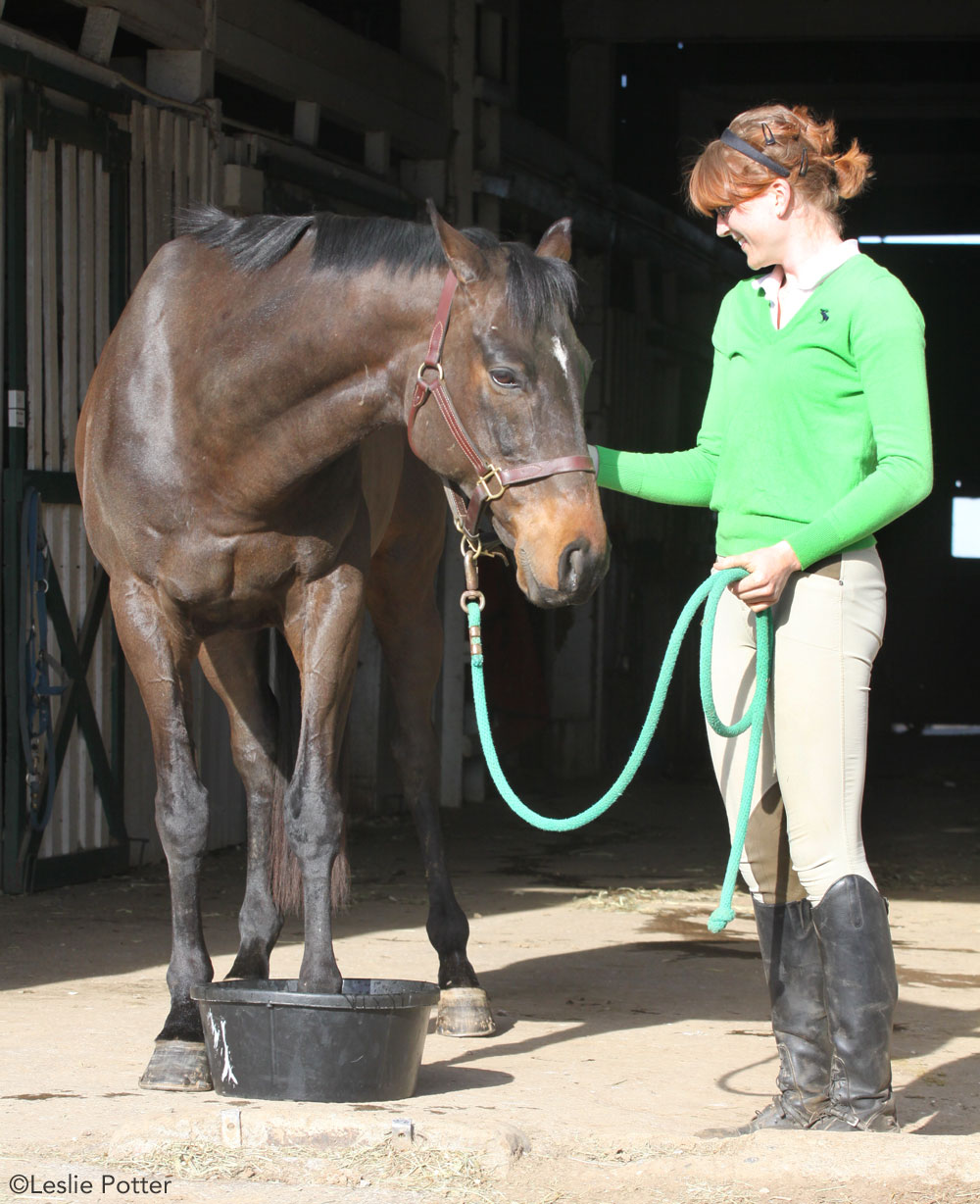Causes of Equine Lameness: Foot Abscess
Subsolar abscesses, localized infections just beneath the sole of the hoof, are one of the most widespread causes of foot pain. As an abscess develops, it exerts pressure on the sensitive structures of the foot. Because the hard hoof wall does not expand, this pressure can become extremely painful.


Horses with abscesses may show varying signs of lameness, but it is often an acute onset of a significant degree of pain, sometimes as severe as Grade 5 lameness (see “Lameness Scale”). These horses may have heat in the foot and an increased digital pulse felt at the fetlock or pastern.
Diagnosis of a hoof abscess is typically straightforward, and identification of the precise location is usually easily achieved with hoof testers. Occasionally radiographs are required to pinpoint the location of the abscess and the extent of its damage, as large or chronic abscesses may infect the coffin bone.
Treatment involves relieving the pressure by draining the abscess. Using a hoof knife, your veterinarian can carefully pare down the sole until the pus can escape. If the sole is too hard, then the foot can be soaked in warm water and Epsom salts for several days to soften the area. Abscesses may also break out through the coronary band, taking the path of least resistance. This area should be monitored closely in these cases.
There are many factors that contribute to the development of hoof abscesses, such as an environmental shift from wet to dry footing; hard ground that bruises the sole; dirty, wet stalls; improper shoeing; or poor hoof conformation. Prevention involves keeping horses in clean conditions and performing routine hoof care, such as daily cleaning and regular trimming.
Back to The Top 5 Causes of Equine Lameness >>
Recent Posts
A Recap of Road to the Horse 2025
Road to the Horse is an exciting, unique colt-starting event, dedicated to changing people’s ideas and creating a better world…
2025 Defender Kentucky Three-Day Event: An Impressive List of Entries
Lexington, Ky. — Six of the world’s top 12 eventing riders, including World #1 Tom McEwen (GBR) and World #2…
2025 Defender Kentucky Three-Day Event
Stay up to date on the action from the 2025 Defender Kentucky Three-Day Event. Find information about the event, including…
Ryan Rose: Creating Strong Partnerships Between Horses and the People Who Love Them
Ryan Rose got bit by the cowboy bug early in life. "My love of horses started when I was a…
Breed Profile: European Brabant
While draft horses come in many shapes and sizes, from the gigantic Shire to the smaller Haflinger, most have something…
The Working Mules of our Public Lands
Flopping ears bounce with every step down the trail as a string of six mules begin the trek from the…